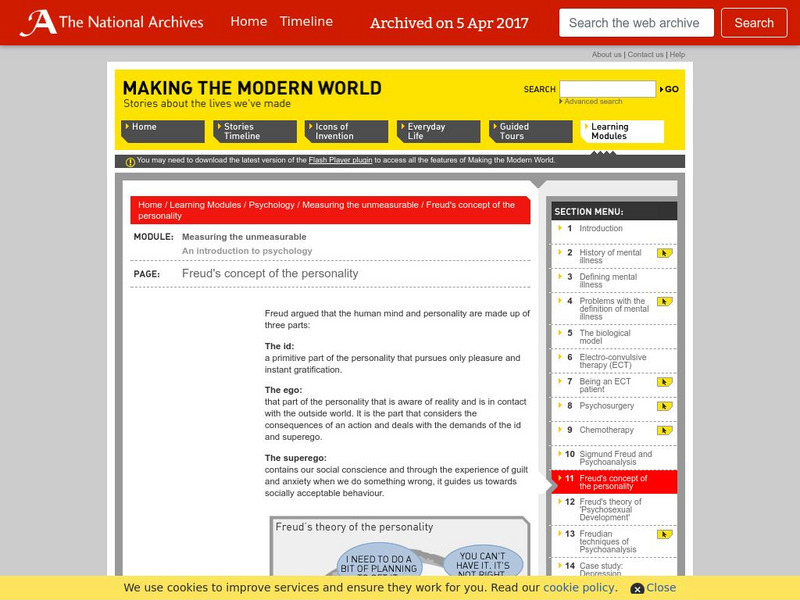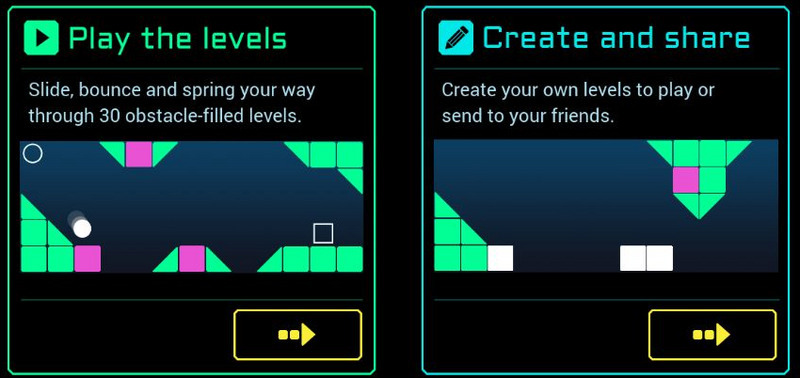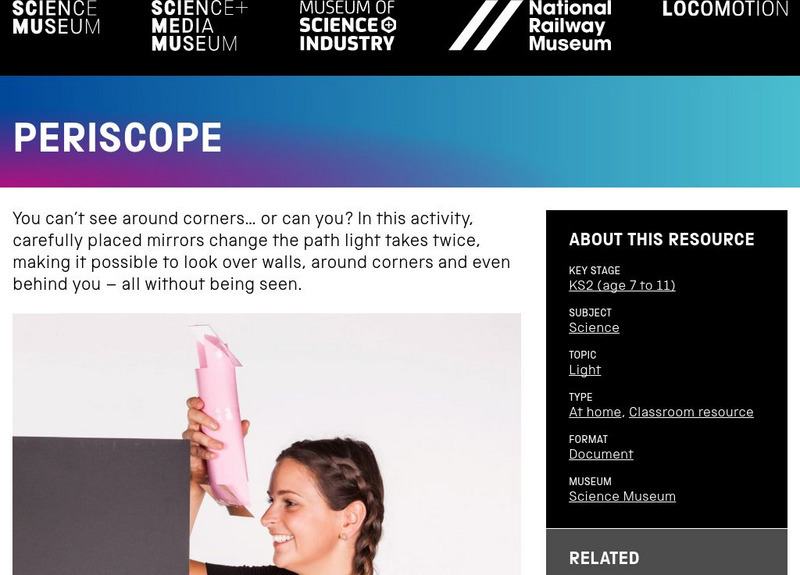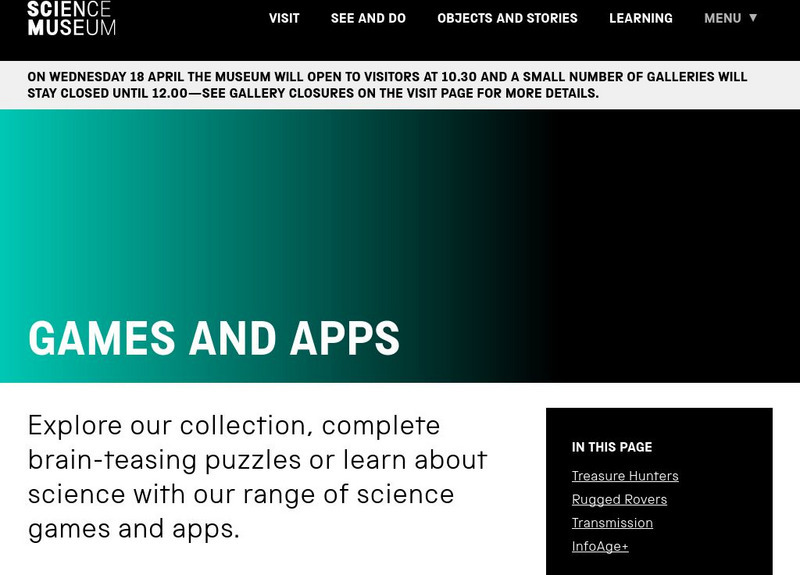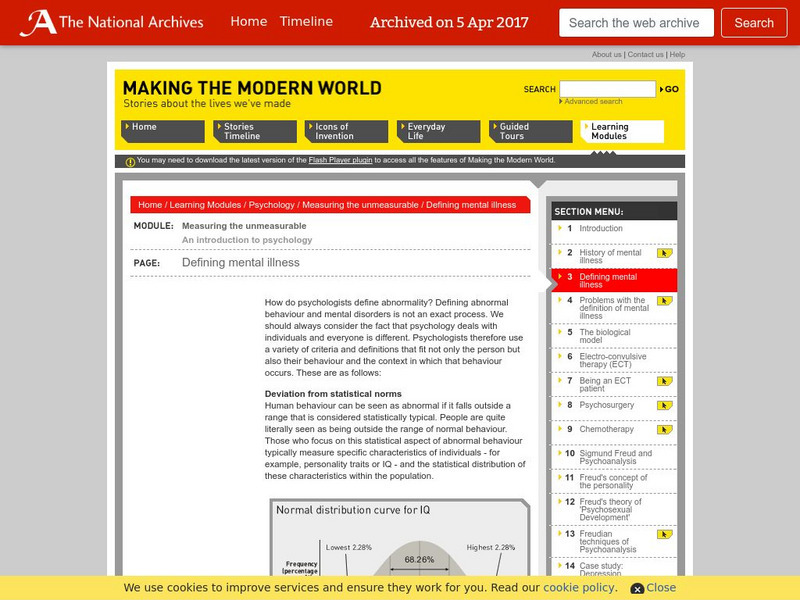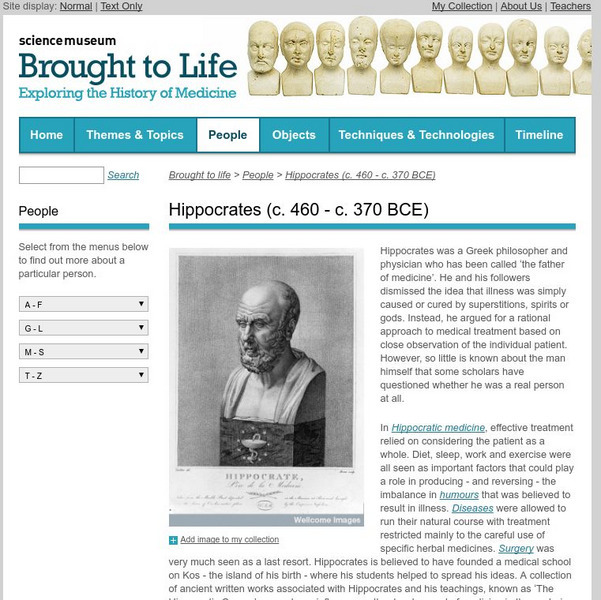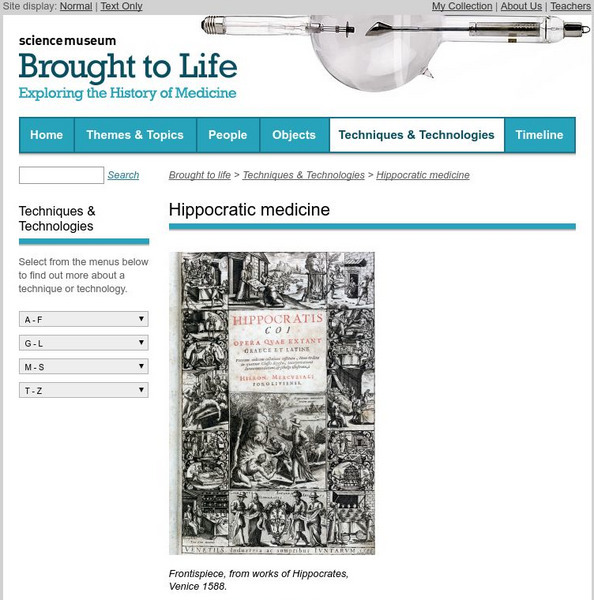Science Museum, London
Science Museum: 3 D Shadows
In this activity students can make a pair of coloured glasses, which allows them to see coloured shadows in 3D. Students will learn what shadows are and how they are produced.
Science Museum, London
Science Museum: Rugged Rovers
Design and test your own all-terrain space rover with this app.
Science Museum, London
Making the Modern World: Freud's Concept of the Personality
Read a brief discussion of Freud's idea of the mind and its three parts.
Science Museum, London
Making the Modern World: Sigmund Freud and Psychoanalysis
This article explains how Sigmund Freud developed his theory of psychoanalysis and its effect on understanding the human mind.
Science Museum, London
Science Museum: What Do Your Cells Do?
Information on cells, including looking at cells, what a cell is made of, how cells make proteins, why cells differ, and new cells for old.
Science Museum, London
Science Museum: Online Stuff: Marie Curie and the History of Radioactivity
Read about Nobel Prize winner, Marie Curie's life, and her historical work with radioactivity.
Science Museum, London
Science Museum: Launchball
Students slide, bounce, and spring their way through 30 obstacle-filled levels. The activity allows learners to create their own levels to play or send to their friends.
Science Museum, London
Science Museum: 360 Periscope
Make a 360 degrees periscope which uses mirrors to reflect light to see around corners.
Science Museum, London
Science Museum: Grain Strain
Combine the simple machines to accomplish a task in this interactive game.
Science Museum, London
Science Museum: Spaghetti Challenge
In this race against the clock, students learn the importance of good design technique and distribution of mass as they work in teams to build the highest tower possible out of dried spaghetti and marshmallows.
Science Museum, London
Science Museum: Antenna: Nanotechnology: Small Science, Big Deal
A description of how nanotechnology can manipulate tiny particles and have applications in sports, clothing, foods, electronics, pollution control, alternative fuels, crime fighting, wars, and healthcare.
Science Museum, London
Science Museum: Ada Lovelace
Some say that Ada Lovelace was the first programmer because she wrote instructions for a computing device designed by Charles Babbage. This site presents a brief history of Ada's life and the important role she played in the history of...
Science Museum, London
Making the Modern World: Defining Mental Illness
Defining mental illness takes into account several deviant behaviors. Find out what psychologists use to determine mental disorders.
Science Museum, London
Science Museum: Energy Today Quiz
This ten-question interactive quiz from Science Museum focuses on the role of energy used in society today. The questions are answered and explained.
Science Museum, London
Science Museum: Energy Action Quiz
This ten question interactive quiz from Science Museum focuses on energy action. The questions are answered and explained.
Science Museum, London
Science Museum: Typewriters
This detailed and thorough site traces the history of the typewriter beginning in the 1700's. The text is supplemented with pictures of old typewriters and an interesting commentary is made about the impact of the typewriter on the role...
Science Museum, London
Science Museum: Brought to Life: Hippocrates (C. 460 C. 370 Bce)
A brief overview of Hippocrates and his ideas about effective medicine.
Science Museum, London
Science Museum: Brought to Life: Hippocratic Medicine
A brief overview of Hippocratic medicine.

